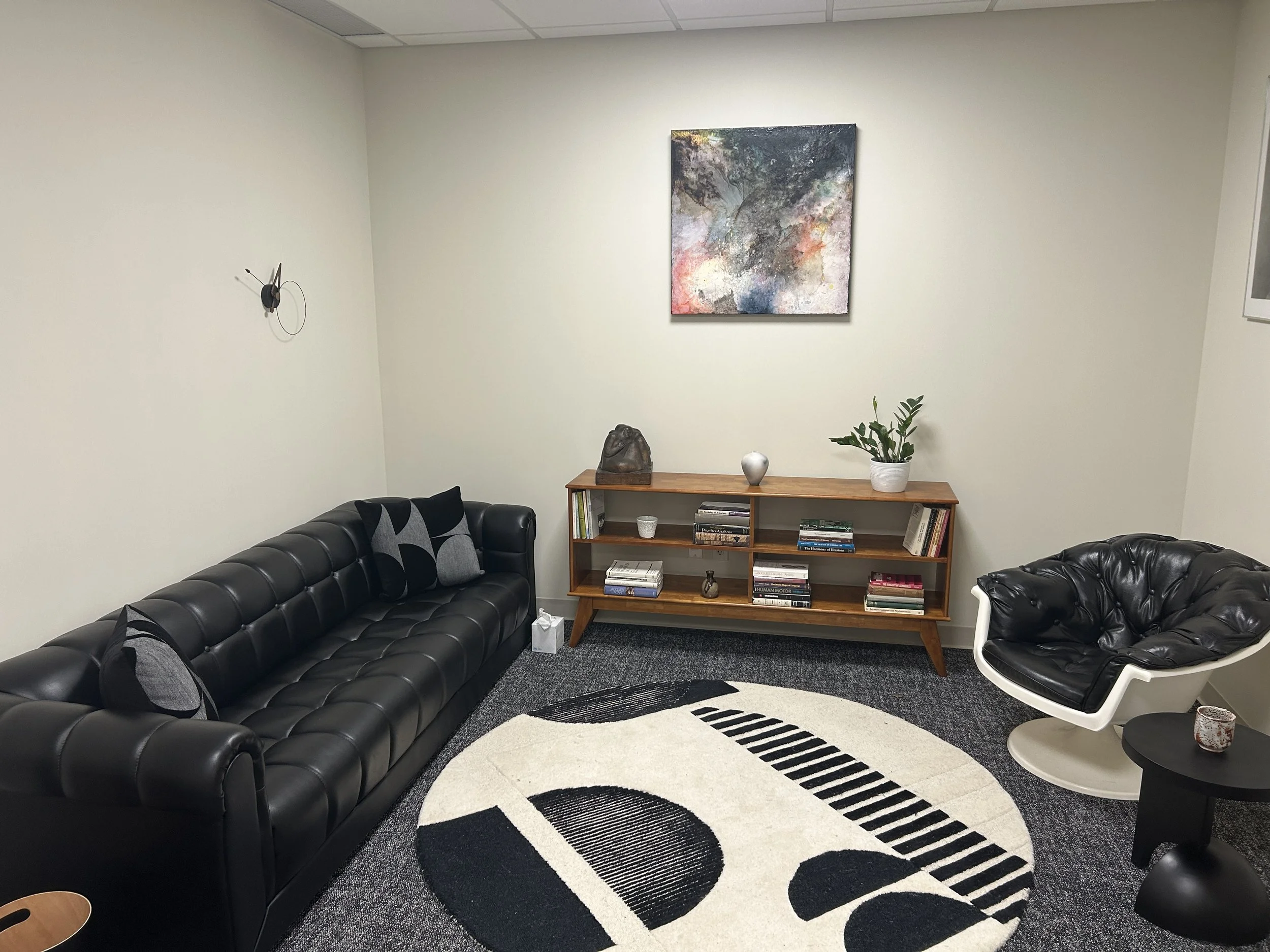I am a licensed clinical social worker practicing psychoanalytic psychotherapy in Ithaca, New York. My practice and training has been with a wide variety of people, from play-therapy with children, to teens, professionals, and older adults.
I work well with those who are interested in the deeper, more intensive process that psychoanalysis entails. Some examples of disorders that I work with are, but are not limited to: anxiety, depression, dissociation, psychotic disorders (such as bipolar, schizophrenia, and paranoia), relationship issues, and problems relating to sexuality (both identification and choice of object).
My practice follows the teaching and insights of Jacques Lacan and others who share his sensibility towards the direction of the psychoanalytic treatment.
I am currently accepting new patients and analysands.
About my practice
Treatments and supervision
Psychoanalysis
Psychoanalytic treatment is a long-form process of discovery that does not operate with guarantees or trade marks. It is singular to each subject and works to uncover the particular way that one has come to find themselves in their own particular form.
Sessions are more regular (multiple times per week) and are of variable length.
Psychoanalytic Psychotherapy
Psychoanalytic psychotherapy is a less intensive version of psychoanalysis. Sessions are held once a week instead of multiple times, and are more reminiscent of traditional psychotherapy. It can also be a good way to see if one would like to enter into a full analysis.
Supervision
I offer psychoanalytic supervision for clinicians and therapists who wish to gain a better understanding of the role of transference, counter-transference, and structural interpretations in the therapeutic or analytic situation.
I specialize in Lacanian diagnosis, formulation, and intervention. This is an inheritance of the Freud’s initial discoveries with added influences from Hegelian and Existential philosophical systems.
What is psychoanalysis?
What sets psychoanalysis apart from other treatments is its ability to work with the entirety of an individual’s life, and not merely with the symptom itself. Hence, we deal with fears, anxieties, fantasies, dreams, jealousies, and the gamut of one’s life history. Practically, it is a practice of association coming to take the place of a dissociation that we have grown accustomed to; an act of making connections where they had been severed, or at least severely limited.
We can also think of psychoanalysis as the name we give to a very specific process of recovery, i.e. the one by which we come to know something that we have always known, but which has evaded our conscious grasp. These “unconscious” elements persist in our lives, beyond our everyday awareness, and are the immediate cause of our suffering. As such, they lead us to repeat patterns and relationships that are harmful, painful, and often antithetical to what we want out of life. Analysis is thus a dual process of discovery and recovery. Just like archaeology, the more we uncover, the more our understanding of our own history changes. Our narratives and notions shift as the lens through which we view ourself changes. It is this type of intervention that offers us a choice, a possibility, where we previously did not have one.
Such a process entails working with another (a psychoanalyst) who listens to the way these elements function in one’s speech and language. Put differently: we will be “working with your unconscious”. This type of work is best done regularly, in-person, and multiple times a week, as the frequency enables the practice to develop in the face of a variety of defenses.
René Magritte, “The Heart Revealed, Portrait of Tita Thirifays”, 1936.
Office location, fees & insurance, and virtual options
Fees and Insurance
I currently accept a few insurances locally. If you are interested in working together, please contact me and I can let you know if I can work with what you have.
If you choose to do out of network or privately pay, the fee will be something we will work together to negotiate, and will not be a determining factor if one would like to do an analysis.
Office Location
My office is located in the South Hill Business Campus at 953 Danby Road, Suite 202-R, in Ithaca, NY. This is an accessible building with a dedicated parking lot and waiting area for patients. I am on the second floor in the Wellness Practices wing. It is also accessible by public transit via the TCAT 11 bus.
Virtual/telehealth
I offer virtual and telehealth treatment. If required by your insurance, we can use video, though it is preferable to do audio-only if possible.
Contact
607-288-2963
sam@samboyleslcsw.com
950 Danby Road, Suite 202-R, Ithaca, NY 14850


